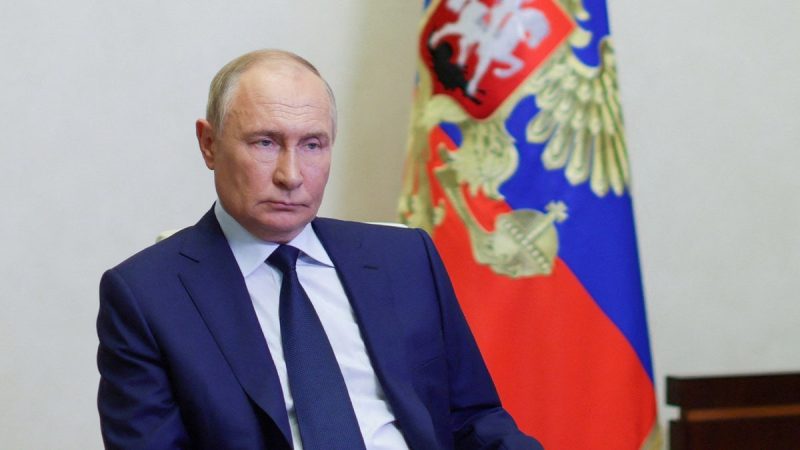In a recent incident that has escalated tensions between Russia and Ukraine, Russian President Vladimir Putin has lashed out at Western nations following what he claims to be a Ukrainian incursion into Russian territory. The confrontation between the two neighboring countries has once again brought to light the deep-rooted geopolitical and territorial disputes in the region.
This latest dispute stems from allegations made by President Putin that Ukrainian forces crossed into Russian territory near the annexed Crimean Peninsula. Putin condemned the alleged incursion as a violation of Russian sovereignty and pointed fingers at Western countries for supporting Ukraine in its actions. The Russian leader’s strong reaction underscores the delicate balance of power in Eastern Europe and the ongoing conflict between Moscow and Kyiv.
The broader context of this incident cannot be ignored. The Ukraine-Russia conflict has been ongoing since the annexation of Crimea by Russia in 2014 and the subsequent support of separatist movements in eastern Ukraine. The conflict has claimed thousands of lives and displaced countless civilians, with little progress made towards a peaceful resolution.
Putin’s response to the Ukrainian incursion reflects his administration’s firm stance on what it perceives as threats to Russian security and territorial integrity. The Kremlin has consistently positioned itself as a defender of Russian interests, both domestically and in its neighboring countries. This latest incident is just one example of the broader geopolitical struggles playing out in the region.
On the other hand, Ukraine has consistently accused Russia of aggression and interference in its internal affairs. The Ukrainian government views Russia’s annexation of Crimea and support for separatist movements as blatant violations of international law and Ukrainian sovereignty. The ongoing conflict has strained relations between the two countries and complicated efforts to find a peaceful solution.
The involvement of Western countries in this conflict cannot be understated. The United States and its European allies have supported Ukraine’s aspirations for closer ties with the West and have imposed sanctions on Russia in response to its actions in Ukraine. The Western stance has further fueled tensions between Russia and the West, with both sides unwilling to back down in the face of the other’s perceived aggression.
As the situation in Eastern Europe continues to simmer, the international community must urgently work towards de-escalating tensions and finding a lasting solution to the Ukraine-Russia conflict. Diplomatic efforts, dialogue, and a commitment to upholding international law are essential in resolving this protracted conflict and preventing further violence in the region.
In conclusion, the recent incident involving a Ukrainian incursion into Russian territory has once again highlighted the complex and volatile nature of the Ukraine-Russia conflict. President Putin’s strong response and the involvement of Western countries underscore the deep-seated geopolitical and territorial disputes at play. It is imperative for all parties involved to prioritize dialogue and diplomacy in order to avoid further escalation and find a peaceful resolution to the ongoing conflict.

